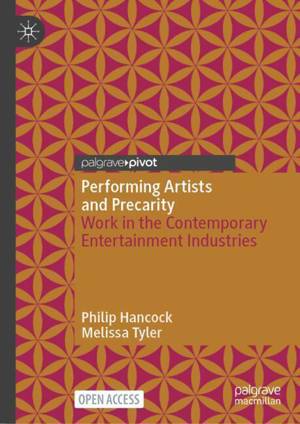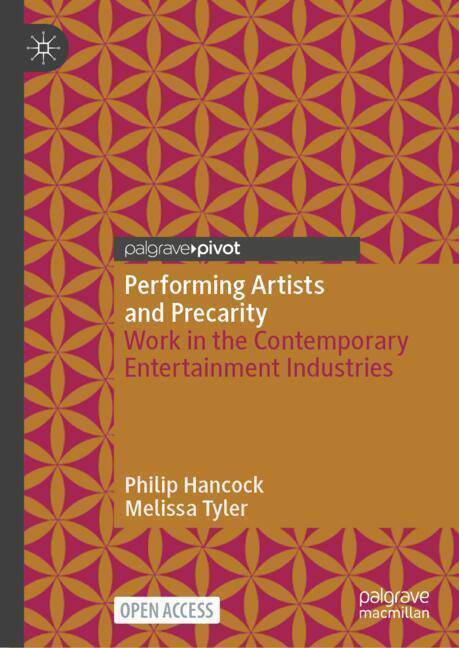
- Afhalen na 1 uur in een winkel met voorraad
- Gratis thuislevering in België vanaf € 30
- Ruim aanbod met 7 miljoen producten
- Afhalen na 1 uur in een winkel met voorraad
- Gratis thuislevering in België vanaf € 30
- Ruim aanbod met 7 miljoen producten
Performing Artists and Precarity
Work in the Contemporary Entertainment Industries
Philip Hancock, Melissa TylerOmschrijving
This open access book focuses on the distinctive experiences of freelance and self-employed live performers in the UK's live entertainment industries It provides an in-depth account of their working lives during COVID-19, showing how their experiences of the pandemic provide insight into the different types of precarity shaping what it means to be a live performer.
A growing body of academic research has focused on the meaning, experience, and nature of precarity for those working in the cultural and creative sector, highlighting the problem of socio-economic precarity. This book demonstrates how a constant struggle for recognition also shapes the contours and lived experiences of live performance work. It emphasizes how, combined with affective and socio-economic forms of precarity, this recognitive precarity creates a distinctive and challenging set of working conditions.
Drawing on original data generated through a national survey of self-employed and freelance performers across the live entertainment industries, combined with insights derived from a series of in-depth semi-structured interviews, this book presents an empirically rich insight into the struggles and opportunities presented by the multiple forms of precarity that the pandemic brought to the fore. It gives voice to a precarious workforce that remains integral to one of the UK's most economically buoyant sectors but whose experiences are often marginalized in academic research, and in policy and practice. It will, therefore, offer a unique insight for both students and scholars of work and employment, and for those working in the cultural and creative sector, into the distinctive nature of work as a freelance or self-employed live performer.
Specificaties
Betrokkenen
- Auteur(s):
- Uitgeverij:
Inhoud
- Aantal bladzijden:
- 133
- Taal:
- Engels
Eigenschappen
- Productcode (EAN):
- 9783031661181
- Verschijningsdatum:
- 17/10/2024
- Uitvoering:
- Hardcover
- Formaat:
- Genaaid
- Afmetingen:
- 147 mm x 201 mm
- Gewicht:
- 294 g

Alleen bij Standaard Boekhandel
Beoordelingen
We publiceren alleen reviews die voldoen aan de voorwaarden voor reviews. Bekijk onze voorwaarden voor reviews.











